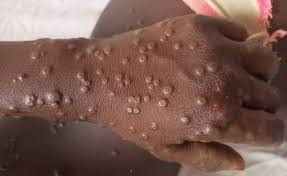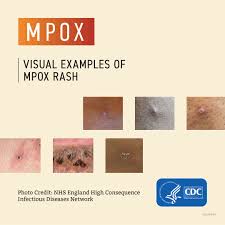By Ross Moyo
Zimbabwe yesterday became the 17th African country to report cases of the viral disease, Mpox following Zambia which reported its first case on October 11 while others such as South Africa, had announced cases some time ago. Mpox is a rare viral infection caused by an Mpox virus that is endemic in Central and West Africa. It spreads through close contact with people, animals or through materials infected with the virus.

The symptoms include fever, rash (that can look like pimples or blisters that appear on the face, inside the mouth or other parts of the body, especially hands, feet and chest), headache, muscle ache and backache, swollen lymph nodes, chills, exhaustion, sore throat, nasal congestion or cough. The incubation period is usually three to 21 days, and is typically slow developing over a period of two to four weeks. Mpox is normally self-limiting, but can be severe in individuals with compromised immunity and other co-morbidities.

Health and Child Care Minister Dr Douglas Mombeshora confirmed this yesterday clarifying the country had only recorded two confirmed Mpox cases, but reassured the nation that everything is under control as all structures have been put on high alert, including at ports of entry. The cases were reported in Harare and Mberengwa in the Midlands Province and the people are in isolation at home, receiving the appropriate care.
Dr Mombeshora said: “The Ministry of Health and Child Care wishes to inform the nation that Zimbabwe now has two confirmed cases of Mpox; one in Harare and another in Mberengwa. “Both cases are in isolation at home and are receiving appropriate care. Both cases are stable and recovering.”
Dr Mombeshora said the first case was an 11-year-old boy with a known history of having travelled to South Africa in August, returning to Zimbabwe on September 10. He then developed symptoms on September 23, is now isolating at home and no longer infectious. Seven contacts have since been identified and are being monitored. The second case is a 24-year-old male with a known history of having travelled to Tanzania on September 14 and returned home on September 21.
The Health and Child Care Minister was joined by Africa CDC National coordinator Charles Emejuru during the press conference on Mpox.
Dr Mombeshera narrated one of the cases that the male individual, ”developed symptoms on September 29 and is isolating at home, and no longer infectious too. Contact tracing and monitoring is underway.”
Mpox was declared a global public health emergency by the World Health Organisation in August after a new clade 1b strain of the viral infection, spread from the Democratic Republic of Congo to neighbouring African countries. The Africa Centres for Disease Control and Prevention (Africa CDC) also declared the outbreak a public health emergency of continental security (PHECS). According to the Africa CDC, the African region had recorded 37 325 suspected cases of Mpox and 996 deaths as of September 29. The number of confirmed cases stands at 7 535 and 32 deaths. A majority of the cases have been identified in the Democratic Republic of Congo.
Minister Mombeshora, a medical doctor by profession, said any persons with symptoms are urged to report to the nearest health facility “as soon as possible”. “Equally, the public is also promptly urged to report suspected cases to the nearest health facility. The health and safety of our communities remains our top priority,” he said.
Mombeshora added that Government has already activated its response mechanisms including an Mpox preparedness and response plan, which has since been shared widely. The national and subnational incident management systems have also been activated while healthcare workers are being trained on integrated disease surveillance and response (IDSR). The Ministry is also conducting awareness campaigns in the provinces to ensure the communities are well informed on Mpox.
“Information Education and Communication (IEC) material has been developed and is being distributed with enhanced surveillance at all the ports of entry including monitoring of travellers coming into the country. “Enhanced community-based surveillance systems are in place and identification and establishment of isolation centres throughout the country is underway,” said Dr Mombeshora.












Comments